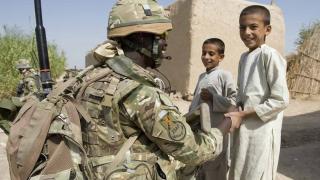
As the UK prepares to be re-elected to the UN Human Rights Council (HRC) on 28 October, UNA-UK urges the Government to demonstrate that re-appointment to the UN's main intergovernmental human rights forum comes with a deeper responsibility to set a positive example to other states.
Coinciding with the 50th anniversary of the UN's first binding international agreements on human rights, the run-up to the UK's re-election is a major opportunity for the UK Government to reaffirm its commitment to the global human rights framework, which it has played a key role in building.
UNA-UK welcomes the UK's willingness to show leadership on human rights by running for Council re-election and by making five key pledges for action on human rights. The UK has been an active and influential player on the HRC, and a strong supporter of the wider UN human rights machinery. However, UNA-UK is deeply concerned about the discrepancy between the UK's position of influence on human rights internationally, and certain developments at the national level.
For a number of years, representatives from across the political spectrum have contributed to an increasingly negative domestic debate on human rights, which has led to proposals to replace the Human Rights Act and withdraw from the European Convention on Human Rights (ECHR) - as well as ministers criticising visiting UN human rights experts.
Some of the rhetoric at the recent Conservative Party conference on seeking to exempt the armed forces from legal action under the European Court of Human Rights was particularly disappointing. Such language risks exacerbating negative public feeling towards human rights at a time when the future of the UK's human rights protections are in question, and misinforming the British public about the purpose of human rights laws, which provide a minimal amount of legal protection for every human being, including British soldiers.
A legacy of leadership
This rhetoric is at odds with the UK's history of leadership on international human rights.
Currently standing for a second term as a voting member of the Human Rights Council, the UK has played a central role at the Council since its establishment. It has voted in favour of (or joined consensus on) the vast majority of Council resolutions over the past decade, and has taken the lead in drafting resolutions on the human rights situation in countries including Syria, South Sudan, Sri Lanka, as well as on the issues of child, early and forced marriage, and modern slavery.
Aside from its leadership at Geneva, the UK also does excellent work to promote human rights internationally. For example, the Department for International Development (DFID) continues to contribute £2.5 million to the Office of the High Commissioner for Human Rights, while the Foreign and Commonwealth Office has doubled its annual funding for its dedicated human rights and democracy programme (the Magna Carta Fund for Human Rights and Democracy) to £10.6 million. This programme has funded over 300 human rights projects in more than 60 countries worldwide since 2011.
UNA-UK also welcomes the fact the UK's National Security Strategy and Strategic Defence and Security Review acknowledges the Human Rights Council as a mechanism for driving global change
Human rights must remain a priority
UNA-UK therefore encourages the UK to take concrete steps to build on its human rights record and ensure that human rights are at the heart of UK foreign policy.
We have long campaigned for the UK to suspend arms exports licences to countries with poor human rights records such as Saudi Arabia, where UK arms sales have been valued £2.8 billion in the three months since the Saudi-led coalition began bombing Yemen. While we welcome the UK's support for a Human Rights Council resolution which called for an independent mission to report on human rights abuses in Yemen, its ongoing arms exports to Saudi Arabia threaten to undermine its legitimacy as a voting Council member.
Preserving human rights as a Government priority is particularly important in light of the fact that UK is currently in the process of reviewing its domestic human rights protections. Government plans to repeal the Human Rights Act and replace it with an as yet unspecified British Bill of Rights have amplified these concerns. As there is expected to be a nationwide consultation on the future of the UK's human rights protections, it is more important than ever for the UK to educate the general public about the value of protecting their fundamental freedoms.
Renewed leadership
UNA-UK therefore urges the UK Government to use its re-election to the Human Rights Council as an opportunity to reaffirm that human rights remain a UK priority by ensuring that its leadership on the world stage aligns with its own foreign policy. It should also strive to contribute to a more positive domestic debate on human rights.
In Geneva, the UK should capitalise on its re-election to take a proactive role in strengthening the Council’s mechanisms – in particular the Universal Periodic Review and Special Procedures – with a view to improving Council effectiveness. It should also use its position as a permanent member of the Security Council to call for improved channels of communication and referral to the Human Rights Council.
Taking an active role in Human Rights Council reform will require the UK to lead by example. As a re-elected voting member, the UK should seek to galvanise wider international support for key human rights instruments by ratifying the two core human rights treaties it is not yet a party to, notably the conventions on the rights of migrants workers and on enforced disappearances. This would strengthen the UK's legitimacy as a global leader on human rights and preserve its influence at the Human Rights Council.
View UNA-UK's report on the UK's performance on human rights
Photo: A soldier from 3rd Battalion, The Royal Regiment of Scotland (The Black Watch) greets children on a foot patrol near check point Kalang in Nad 'Ali district, Helmand, Afghanistan. Copyright Defence images/Sgt Wes Calder RLC




